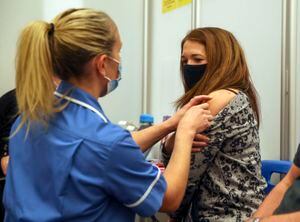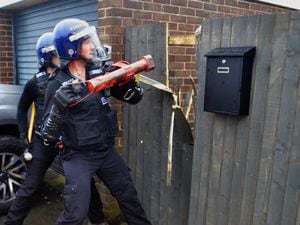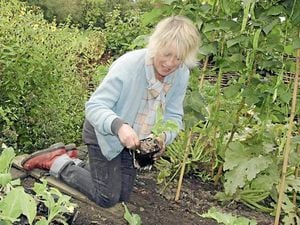Shropshire Star comment: Donating vaccines and expertise is in everyone's interest
The Covid virus is continuing to mutate. As with other, similar viruses, it will adapt in order to survive.

That means the vaccines we have today may not be able to guard against the viruses that emerge tomorrow.
Variants are normal. They provide a way for viruses to survive. We are lucky in that we are the world’s leading country in tracking variants and that means we are forewarned early.
The emergence of variants shows why our lockdown has to be guarded and why its easing has to be slow. Each one reacts differently to our vaccine and it is essential to be cautious.
Over time, however, it will become easier, rather than more difficult. Our scientists are building a bank of vaccines that will require only small tweaks in order to become effective against new strains.
The emergence of variants shows why it is essential the whole world is vaccinated.
Countries like Brazil and India are breeding grounds for variants that can then spread globally, putting under threat countries that have got on top of the virus. It has been clear for sometime that until everyone is safe, nobody is safe.
And so while England, Scotland and Wales are emerging from their three-month lockdown in a much-improved position, there is still considerable work to be done.
We all witnessed how rapidly the small, unknown virus from China spread last spring.
By March, we were in lockdown. The same can happen with new variants. We are in a better position than we’ve been for around a year, though our good work can still be undone.
It is essential that each of us takes personal responsibility to guard against either catching or transmitting Covid-19, by socially distancing and making sure we’re vaccinated.
It is necessary too to observe the rules at each and every stage of lockdown; they are there to protect us, however frustrating they might be.
However, this is a global problem and our Government must work with other First World nations to assist those without the means to solve this crisis.
Donating vaccines, expertise and more is in our own interest, as well as the interest of poorer countries who are unable to fend for themselves.
We are truly in this together.
Pothole stories are a perennial fixture in this newspaper, even more so when we have suffered a cold winter when icy roads cause them to crack and break.
This year they seem as bad as ever.
Even main roads are damaged badly, putting at risk our cars and, more importantly, the lives of cyclists and motorcyclists.
Councils are in a difficult position as they rely on government funding to carry out these essential repairs.
Against the huge array of work required, they often can’t afford to put money into making sure our roads are safe by keeping up maintenance.
Yet keep our roads safe they must and ways must be found to remediate unacceptable standards.
In addition to those safety concerns, the cost to motorists is high. Drivers can find themselves left with punctured tyres and further damage through no fault of their own.
Technology may provide part of the solution. In certain areas, drones are used to identify potholes and fill them, rather than expensive teams of workmen. Such innovation is important as we look for an answer to ensure our roads are fit for purpose.





